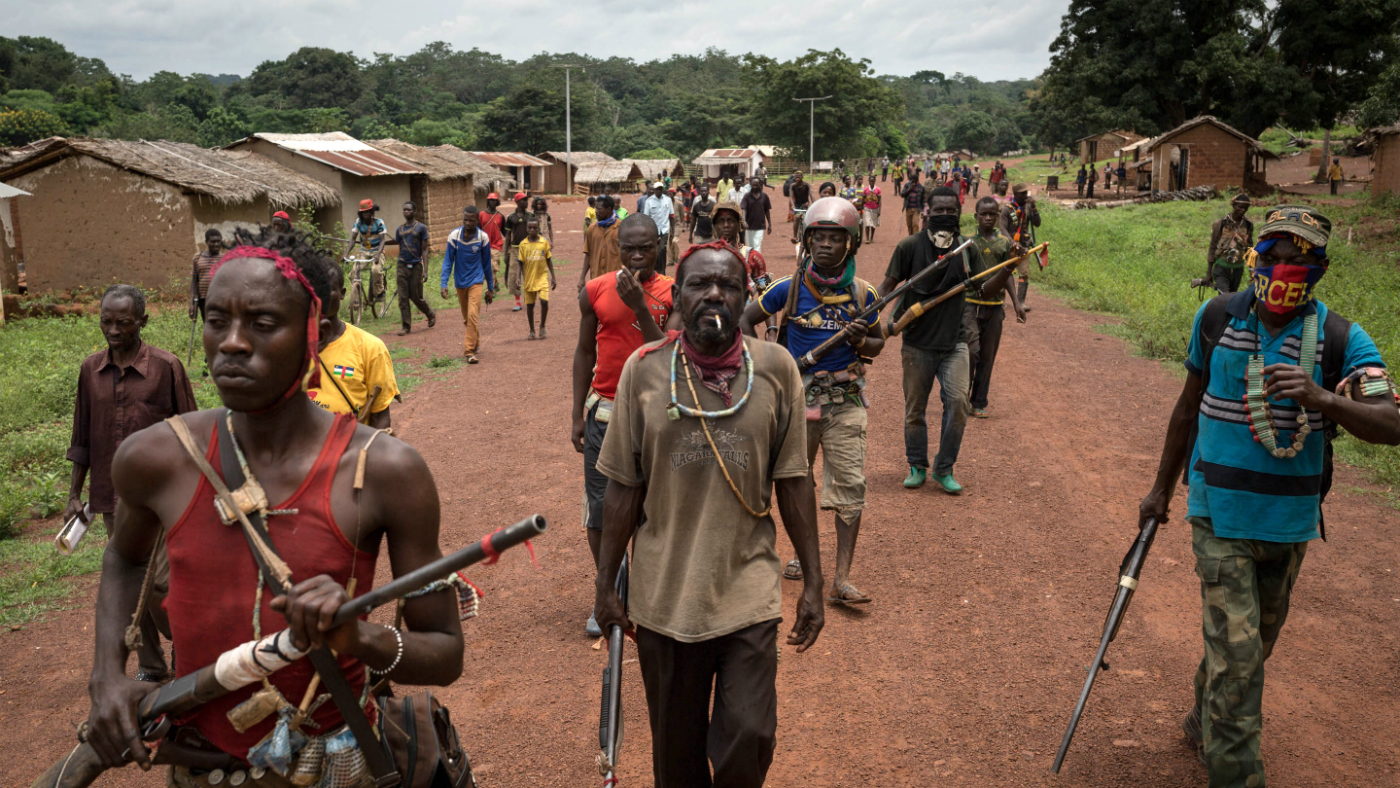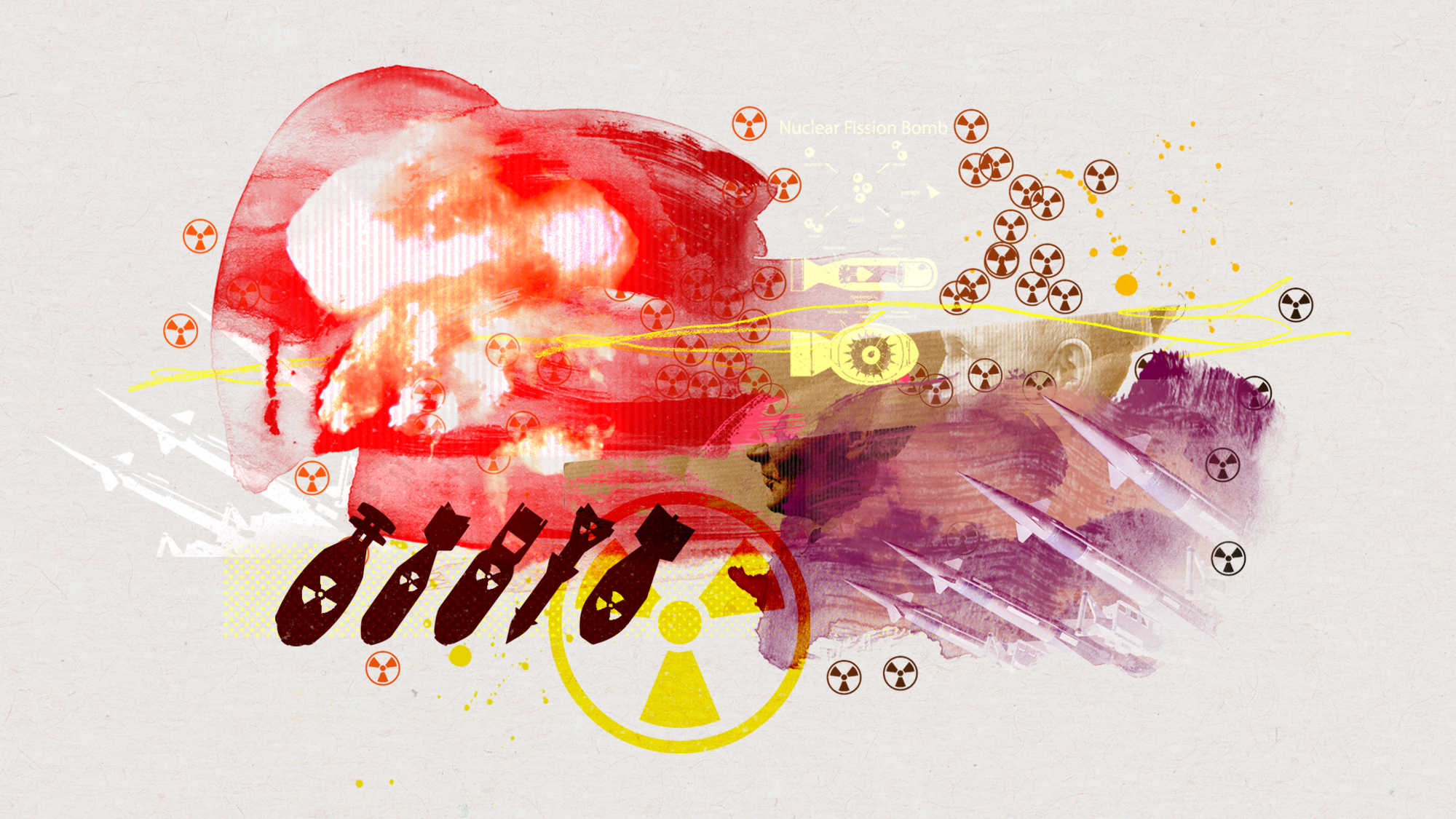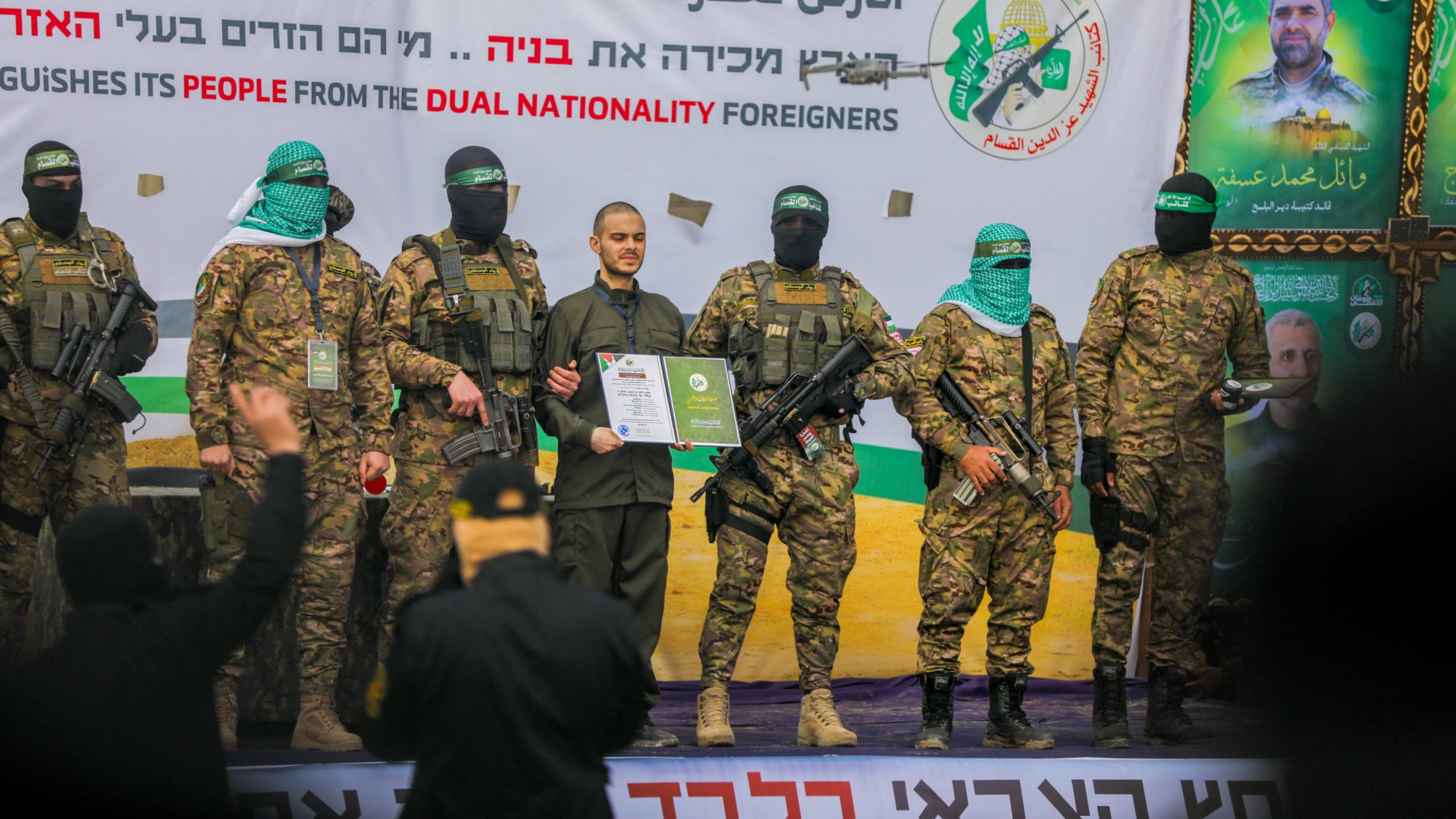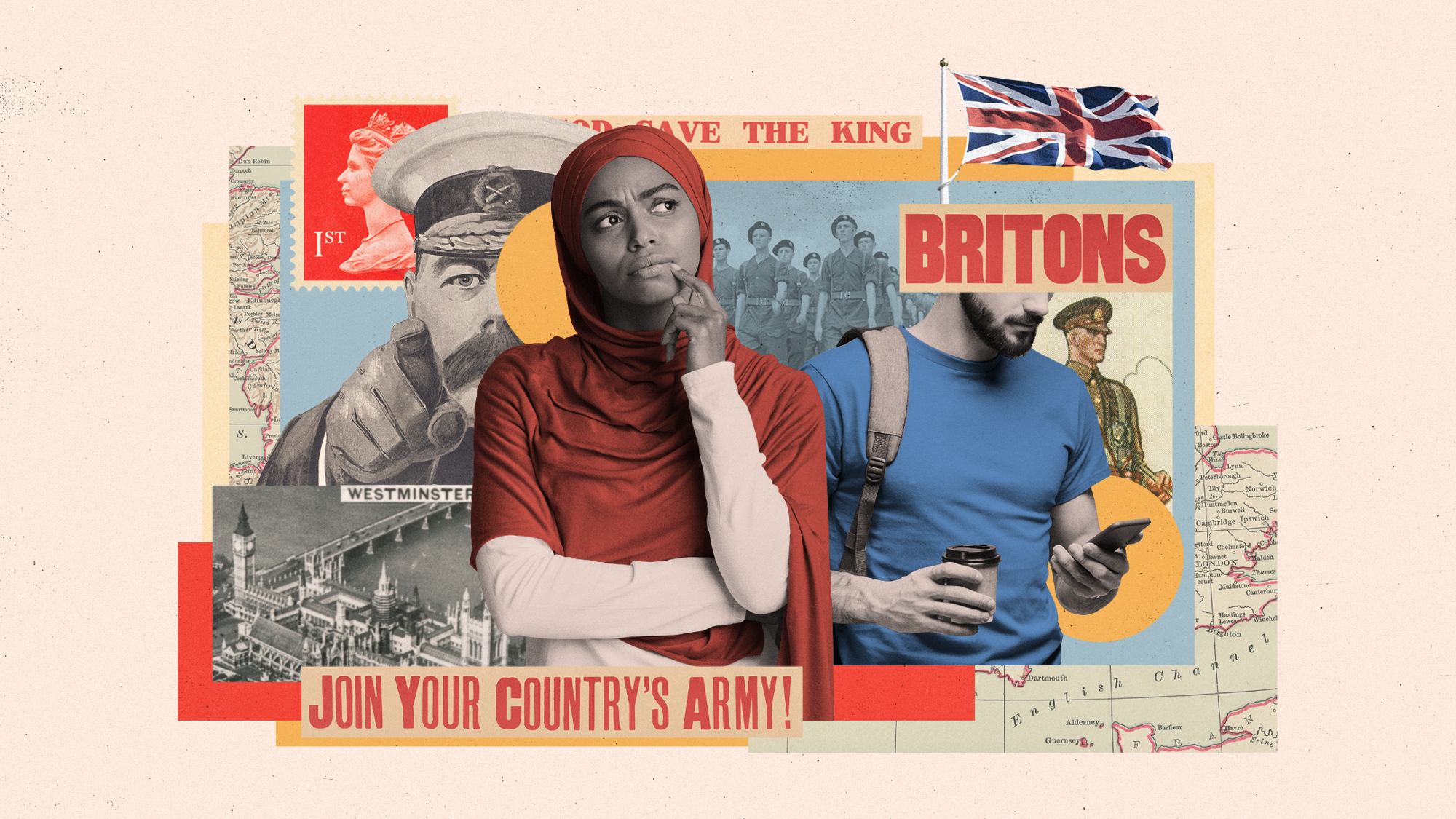What does Russia want in Central Africa?
EU and UN are keeping close eye on creeping Russian presence in the war-torn country

A free daily email with the biggest news stories of the day – and the best features from TheWeek.com
You are now subscribed
Your newsletter sign-up was successful
European leaders this week agreed to step up their peacekeeping efforts in the Central African Republican (CAR) amid growing concern about Russia’s role in the country’s bloody civil war.
Thousands of people are believed to have been killed in the three-way conflict between government forces, extremist Christian militia and Islamist insurgents, which began in 2012. The African nation is “one of several fragile states in the middle of the continent destabilised in part by weapons and fighters that spilled out of Libya after the 2011 overthrow of Colonel Muammar Gaddafi”, The Wall Street Journal (WSJ) reports.
The republic’s UN-backed government currently controls just a third of the country’s total area, and is struggling to maintain order in the capital, Bangui, Foreign Policy adds.
The Week
Escape your echo chamber. Get the facts behind the news, plus analysis from multiple perspectives.

Sign up for The Week's Free Newsletters
From our morning news briefing to a weekly Good News Newsletter, get the best of The Week delivered directly to your inbox.
From our morning news briefing to a weekly Good News Newsletter, get the best of The Week delivered directly to your inbox.
In recent years, both the EU and UN have deployed peacekeeping missions to help train the government’s forces to tackle insurgencies. The EU also provides strategic advice to government ministries and the president’s office, along with hundreds of millions of euros of humanitarian aid.
But the creeping yet significant influence of another superpower in the former French colony is raising eyebrows.
The increasing presence of Russia - both militarily and diplomatically - has triggered fears that Moscow may be seeking a foothold in the region, where Western European countries have previously had the most significant historical and trade-based links.
“When the Central African Republic (CAR) pleaded for help last year to fight marauding militias, former colonial ruler France offered guns it had seized off Somalia,” Reuters reports. “But Russia objected and donated its own weapons instead.”
A free daily email with the biggest news stories of the day – and the best features from TheWeek.com
This new cooperation between the CAR and Russia culminated in a military deal signed by both nations in August this year that paved the way for Moscow to take a lead role in the training of the republic’s military personnel.
The WSJ adds that “Moscow delivered light arms to its security forces earlier this year and said it had deployed five military instructors and 170 civilian ones to train them, a move the government said would bolster their bilateral military cooperation”.
But what is Moscow getting in return?
The BBC’s Africa security correspondent, Tomi Oladipo, says Russia “has always maintained that its actions were in response to a request for help from the CAR”.
“But among the agreement that the two nations have signed is one involving mining exploration,” Oladipo adds. “The CAR has rich deposits of diamonds, gold and uranium. In fact, Moscow has admitted that the deal is - in its own words - ‘mutually beneficial’.”
Russian Foreign Ministry spokesman Artyom Kozhin said in a statement in March that “prospecting-mining exploration concessions” had begun and that the Russian government “believes these projects will help stabilise the economic situation in CAR, promote the construction of the infrastructure, and serve as a basis for drawing additional investment to the country’s economy”.
But not everyone believes Russia’s plans for sub-Saharan Africa will be limited to mining.
“Since Western nations sanctioned Russia for annexing Crimea in 2014, Moscow has signed 19 military cooperation deals in sub-Saharan Africa, including with Ethiopia, Nigeria and Zimbabwe,” Reuters reports. “The continent’s 54 member states at the United Nations – three of which sit on the Security Council at any given time – form the organisation’s largest voting bloc and one of its most coherent, making them attractive allies for Russia.”
Whether or not Russia will look to sub-Saharan Africa as an ally in future votes by the Security Council remains to be seen.
However, as Dmitri Bondarenko, an anthropologist and historian at Russia’s Institute for African Studies, told the news site: “The West is not very much loved by many countries. And many see Russia as the country that will oppose the West.”
-
 Switzerland could vote to cap its population
Switzerland could vote to cap its populationUnder the Radar Swiss People’s Party proposes referendum on radical anti-immigration measure to limit residents to 10 million
-
 Political cartoons for February 15
Political cartoons for February 15Cartoons Sunday's political cartoons include political ventriloquism, Europe in the middle, and more
-
 The broken water companies failing England and Wales
The broken water companies failing England and WalesExplainer With rising bills, deteriorating river health and a lack of investment, regulators face an uphill battle to stabilise the industry
-
 Munich Security Conference: a showdown between Europe and Trump?
Munich Security Conference: a showdown between Europe and Trump?Today’s Big Question Report suggests European leaders believe they can no longer rely on the US for military support – but decoupling is easier said than done
-
 Taiwan eyes Iron Dome-like defence against China
Taiwan eyes Iron Dome-like defence against ChinaUnder the Radar President announces historic increase in defence spending as Chinese aggression towards autonomous island escalates
-
 The mission to demine Ukraine
The mission to demine UkraineThe Explainer An estimated quarter of the nation – an area the size of England – is contaminated with landmines and unexploded shells from the war
-
 How will the MoD's new cyber command unit work?
How will the MoD's new cyber command unit work?Today's Big Question Defence secretary outlines plans to combat 'intensifying' threat of cyberattacks from hostile states such as Russia
-
 What are the different types of nuclear weapons?
What are the different types of nuclear weapons?The Explainer Speculation mounts that post-war taboo on nuclear weapons could soon be shattered by use of 'battlefield' missiles
-
 Is the 'coalition of the willing' going to work?
Is the 'coalition of the willing' going to work?Today's Big Question PM's proposal for UK/French-led peacekeeping force in Ukraine provokes 'hostility' in Moscow and 'derision' in Washington
-
 Is Gaza ceasefire deal about to fizzle out?
Is Gaza ceasefire deal about to fizzle out?Today's Big Question Israel and Hamas accuse each other of deliberately breaking first phase of the fragile truce, which is set to expire on Saturday
-
 Would Gen Z fight for 'racist' Britain?
Would Gen Z fight for 'racist' Britain?Today's Big Question Only 11% of people aged 18-27 say they would fight for UK, survey by The Times reveals, amid low levels of pride and 'declines in confidence in institutions'